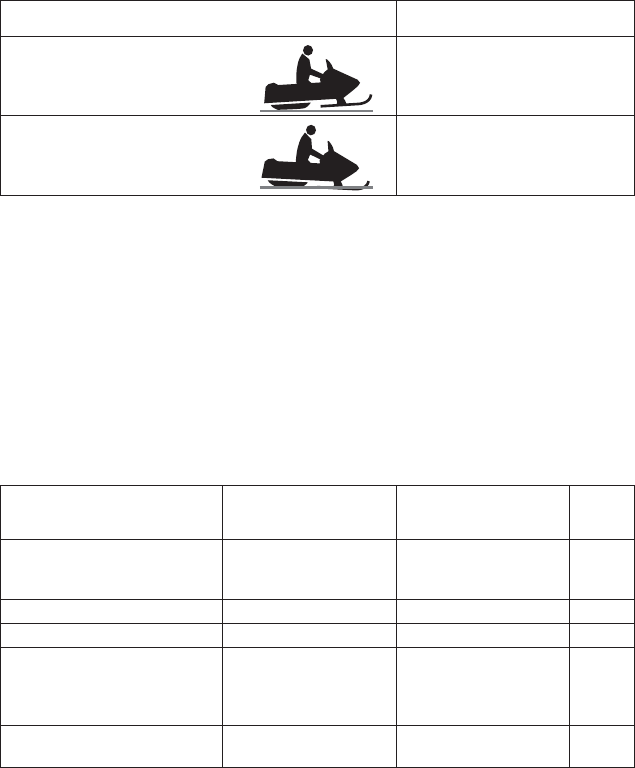
47
THE PERFECT FIT
Suspension Quick Set-Up Guide
Step 2: Adjust the rear spring to tune vehicle balance.
After the initial test ride, make adjustments to the rear shock spring to
improve vehicle balance. Increasing preload will increase ski pressure
and result in less weight transfer, flatter cornering and more precise
steering response. Decreasing preload will decrease ski pressure and
result in more weight transfer, or less weight on the skis when accelerat-
ing.
Step 3: Adjust shock clickers for ride quality.
After making spring adjustments, adjust shock clickers to control bot-
toming. Turning a clicker counter-clockwise decreases damping for a
softer ride. Turning a clicker clockwise increases damping for a stiffer
ride and less bottoming.
NOTICE: Always adjust the clicker at least one click below full stiff (full clock-
wise) or shock damage will occur.
Test ride the snowmobile and continue making spring and clicker
adjustments until you achieve the perfect ride.
TIP:Initially, heavier riders may want to set the shock clickers 2-4 clicks higher
than lighter riders.
Ride Experience Adjustment
Too much weight transfer
•Ski pressure is too light
•Skis push
Turn rear shock spring
retainer clockwise (see
page 55)
Too little weight transfer
•Ski pressure is too heavy
•Steering is heavy
Turn rear shock spring
retainer counter-clockwise
(see page 55)
Ride Experience
Clicker
to Adjust
Adjustment
See
Page
Bottoming in the IFS IFS shock - after
150 mi. (240 km)
break-in
Clockwise 52
Bottoming in the center Front track shock Clockwise 54
Bottoming in the rear Rear shock Clockwise 55
No bottoming, but ride is
harsh in front or rear
IFS shock (after
break-in), Front
track shock, Rear
shock
Counter-clockwise 52
54
55
Harsh in chatter/bumps Front track shock,
Rear shock
Counter-clockwise 54
55


















